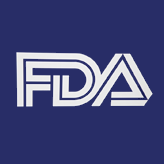Asparaginase Erwinia Chrysanthemi Gets FDA Approval for Acute Lymphoblastic Leukemia
The US Food and Drug Administration has approved asparaginase Erwinia chrysanthemi for the treatment of patients with acute lymphoblastic leukemia, who have developed hypersensitivity to E. coli derived asparaginase and pegaspargase chemotherapy.

The US Food and Drug Administration (FDA) has approved asparaginase Erwinia chrysanthemi (Erwinaze) for the treatment of patients with acute lymphoblastic leukemia (ALL), who have developed hypersensitivity to Escherichia coli derived asparaginase and pegaspargase chemotherapy.
The drug, part of a multiagent chemotherapeutic regimen, is given as an intramuscular injection 3 times a week and works by breaking down the amino acid asparagine, which leukemia cells cannot produce.
Neoplastic ALL cells depend on asparagine for proliferation. Normal human cells are able to make enough asparagine for their own needs through biosynthesis and are not affected.
The safety and efficacy of the drug was established in Study 1, a single-arm, multi-center, open-label, safety and clinical trial, which investigated 58 ALL patients with a median age of 10 years. The main endpoint was the measurement of the proportion of patients with sustained asparaginase activity levels that correlate with better leukemia control and survival (serum trough asparaginase level ≥ 0.1 International Units/mL). Serum trough asparaginase activity of this level has been demonstrated to correlate with asparagine depletion and to serum levels that predict clinical efficacy. Of the 58 patients, 48 were determined to be evaluable. All evaluable patients were shown to have maintained the prespecified threshold at 48 or 72 hours after dosing.
ALL is the most common malignancy of childhood, accounting for approximately 25% of childhood cancer and approximately 4,900 cases per year in the United States. A second peak in incidence occurs after 50 years of age. Although ALL accounts for a smaller proportion of adult than of pediatric malignancies, the absolute number of adult cases is ten times greater.
“The approval of Erwinaze underscores the FDA’s commitment to the approval of drugs for conditions with limited patient populations with unmet medical needs using novel trial endpoints,” said Richard Pazdur, MD, director of the Office of Hematology and Oncology Products in the FDA’s Center for Drug Evaluation and Research, in a press release announcing the new approval.
The drug has been granted orphan drug status.
Side effects associated with asparaginase Erwinia chrysanthemi include anaphylaxis, pancreatitis, abnormal transaminases and bilirubin, thrombosis, hemorrhage, nausea, vomiting, and hyperglycemia.